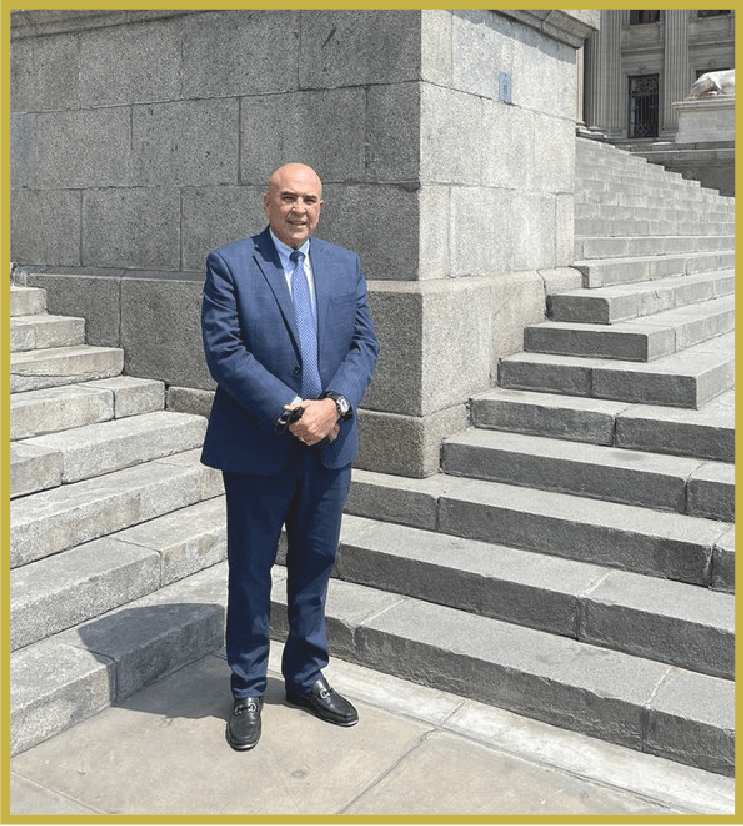SCHEDULE AN INFORMATIVE APPOINTMENT WITH OUR CONSULTANTS
LEARN HOW YOU CAN LIVE LEGALLY IN THE UNITED STATES WITH THE EB2 - NIW
OUR OBJECTIVE
It is to make the permanent residency application process and processing times a little easier for our clients.

An EB2-NIW is an immigrant visa that grants a foreign national lawful permanent residence in the U.S. without the requirement of a job offer. The job offer requirement does not apply if the applicant can demonstrate that permanent residence in the U.S. would be in the “national interest” and would benefit the country.
Yes, the two are very different in terms of their requirements, processing times and the documentation required for each. In general, an EB2 or other employment-based visas require a formal job offer for the applicant to be eligible to apply. Additionally, it requires a Labor Certification from the Department of Labor.An EB2 with NIW, on the other hand, does not require any offer of employment. The petitioner is not required to go through the labor certification process with the Department of Labor. This is provided that the petitioner (applicant) can prove that his or her admission to the United States would be of national benefit.
Any foreign national may apply for an EB2-NIW visa. An immigration attorney can complete a solid application package that verifies all requirements and presents the appropriate legal arguments. An applicant does not need an employer.
The EB2 National Interest Waiver precludes the need for a labor certification from the Department of Labor. Labor certification can be costly and time consuming to obtain. This visa also eliminates the requirement for an offer of employment. However, all other “entry” requirements must be met to be eligible for the visa.
The EB2-NIW visa is available to foreign nationals who have obtained an advanced degree or its foreign equivalent in a professional field. These individuals may also meet this educational requirement with a bachelor’s degree and at least 5 years of progressive experience in their field. Individuals who demonstrate exceptional abilities in fields such as science, technology, mathematics, engineering, arts, business, etc., also qualify for this visa.
An immigration attorney well versed in immigration law can best evaluate a candidate’s professional background to determine in which category the candidate best qualifies.
An advanced degree under the EB2-NIW framework is a degree or qualification higher than a bachelor’s degree. The applicant can obtain this in the U.S. from a recognized U.S. college or university or a foreign equivalent of a U.S. advanced degree.
The USCIS office requires a master's degree or other advanced degree. If a foreign applicant only has a U.S. bachelor's degree or foreign equivalent, at least 5 years of post-bachelor's work experience in the specialized field will be required. If the foreign national applying for this visa also lacks the required work experience, he or she must demonstrate exceptional skills in his or her field to be successful in his or her visa application.
The following persons are eligible to apply for an EB2-NIW:
A foreign national who meets the following requirements:
- The proposed effort has substantial merit and national significance.
- The applicant is capable of advancing the proposed effort.
- Substantial benefits to the “national interest” of the United States.
You can also qualify for the EB2-NIW visa if you demonstrate “exceptional ability” in the areas of the sciences, arts or business. You must meet at least three (3) of the following requirements:
1. An official academic record attesting to a degree, diploma or certificate in your field;
2. Letters confirming at least 10 years of full-time experience in your field;
3. A license or certificate in your field;
4. Evidence that you received a salary or remuneration above average in your field;
5. Evidence of membership in professional associations in your field;
6. Documents evidencing recognition for your achievements and contributions within your field.



